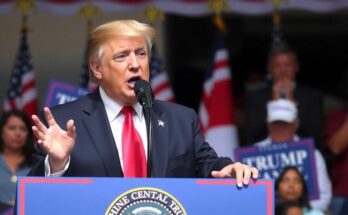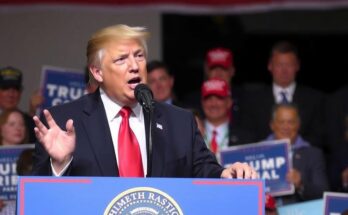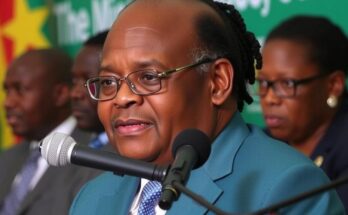In the aftermath of the disputed presidential elections in Venezuela, protests erupted against Nicolás Maduro’s regime, prompting a brutal response that has led to widespread arrests and allegations of terrorism against demonstrators. Families are left searching for missing loved ones, revealing the desolation and dissent that permeates society amidst an economic crisis. The stark divide between socioeconomic classes in their responses to the regime further complicates the political landscape, highlighting a desperate quest for change.
In the sweltering Caribbean heat, hundreds of families gathered outside the Zone Seven Detention Center in Boleíta, Caracas, seeking information about their loved ones who had been detained during the violent protests following the announcement of the controversial presidential election results that extended Nicolás Maduro’s presidency for a third term. Among these individuals was Hernán García, who was frantically searching for his 19-year-old son, Luis, who had disappeared after joining the demonstrations against what many consider a fraudulent election. The socio-political landscape of Venezuela is marked by the legacy of Hugo Chávez, whose socialist policies initially garnered support through significant economic investment in welfare programs. However, following Chávez’s death in 2013 and the subsequent drop in oil prices, Venezuela plunged into a deep economic crisis, leading to mass migration and humanitarian challenges. Maduro’s government, which has been accused of exacerbating the crisis through repression, faced widespread protests when his election results were met with public outrage. For the first time in many years, marginalized communities raised their voices against the regime, protesting in the streets as the government responded with a harsh crackdown. The aftermath was grim—within days, casualties mounted, and thousands were arrested, branded as “terrorists” by Maduro’s administration. Legal representatives, such as Stefania Migliorini of Foro Penal, noted that those detained were being processed in terrorism courts, further indicating the regime’s intent to instill fear within its population. While some members of society continue to support Chavismo, a growing disenchantment is evident, particularly among the poorer demographics who are disproportionately affected by the economic collapse. Many residents express their frustration with a government that appears out of touch with the needs of its citizens, as they coexist with a ruling elite thriving in stark contrast to the struggle experienced by the average Venezuelan. As protests continue, the stark divide between the participating demographics—the impoverished facing repression versus wealthier citizens engaging in opposition demonstrations—highlights the complexities of Venezuela’s political turmoil and the significant implications for its future.
The article examines the current socio-political climate in Venezuela following the controversial election that led to Nicolás Maduro’s continued presidency. It discusses the deep historical roots of discontent stemming from the post-Chávez era, where previously supportive poorer neighborhoods are now rising against the regime amidst an ongoing humanitarian crisis. The narrative sheds light on the consequences of systemic repression, particularly against activists, and the stark contrasts between socioeconomic classes in their response to the government’s actions.
The situation in Venezuela is both complex and dire, characterized by widespread dissent against an increasingly authoritarian regime led by Nicolás Maduro. The protests following the recent elections have not only revealed deep-seated frustrations within society but have also prompted a violent crackdown by the government that has targeted the very communities that have long supported Chavismo. As disillusionment spreads, the divide between different classes within Venezuela may shape the future of political engagement and the potential for change in a society grappling with widespread poverty and repression.
Original Source: www.thestkittsnevisobserver.com




